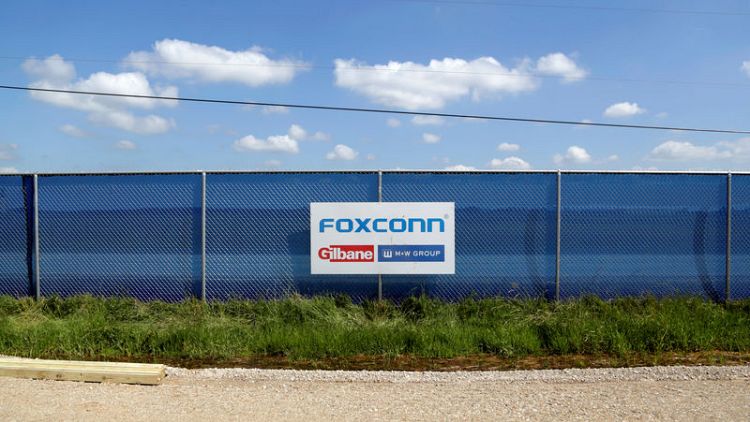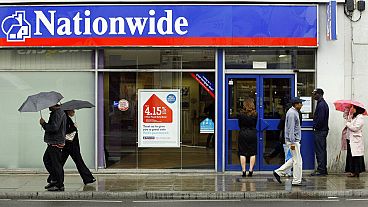TAIPEI (Reuters) - Taiwanese manufacturer Foxconn reported a smaller than expected fall in quarterly profit, despite warning signs from key customers including Apple Inc that demand for tech electronics is softening.
Foxconn, formally known as Hon Hai Precision Industry Co Ltd, reported net profit of T$62.61 billion ($2.03 billion) for the final three months of 2018 on Friday. That was 12.6 percent below the year-earlier results, the company said in a statement.
The result beat a mean estimate of T$36.64 billion (907.15 million pounds) from eight analysts, according to I/B/E/S data from Refinitiv. It was also the biggest quarterly profit the company has posted for 2018.
Analysts had forecast a steeper decline on account of the higher base a year earlier due to a T$66 billion disposal gain from sale of Sharp's special shares, as well as sluggish iPhone demand amid a tepid smartphone market.
But a company official said on Friday that the better-than-expected profit was driven by revenue growth. He did not elaborate.
Foxconn acquired control of Japan's Sharp in 2016 to try to boost the Taiwanese company's advanced screen technology.
For 2018 as a whole, Foxconn's net profit totalled T$129.1 billion, down 6.9 percent from 2017, the company said.
Lewis Liao, an analyst at Fubon Research in Taipei, said ahead of the results that investors are now looking to a possible recovery of iPhone sales in the second half, which could boost profits for Taiwanese manufacturers including Foxconn.
The prolonged downturn in global tech demand is likely to hit profits for the island's many technology manufacturers this year. United Microelectronics Corp, Taiwan's second-biggest contract chipmaker, said February sales fell about 12 percent on-year.
Foxconn Technology said in February it will build a factory in Wisconsin after the company's chairman Terry Gou spoke to U.S. President Donald Trump, following a Reuters report that the Taiwanese company was reconsidering its plans.
Shares of Foxconn rose 2.4 percent on Friday ahead of the results, beating the benchmark share price index. They are up 2.9 percent this year after falling 30 percent last year.
(Reporting By Yimou Lee; Editing by Keith Weir)



